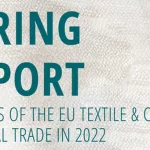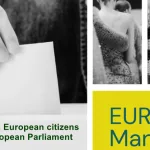The European Parliament has adopted its own initiative legislative report on due diligence. Euratex has welcomed the overall aim of the report, but notes that implementation has yet to be discussed and will penalize European industry with unintended consequences and an undue burden on SMEs. Euratex also warns of the impact of the new legislation on an industry severely affected by Covid-19 .
Euratex welcomes the broad consensus around several important points, such as harmonization of legislation at European level rather than following national approaches, and the principle of proportionality. However, the severity of the unintended consequences, especially in difficult economic times, appears to be still not fully understood.
The European harmonization would avoid chaos across Europe on the requirements, minimize confusion over the interpretation of “responsible business conduct” and would promote a level playing field. However, fair enforcement and related operational challenges are not sufficiently considered.
Proportionality is a very crucial principle in the due diligence debate. Small and medium-sized enterprises (SMEs) do not possess the capabilities of larger companies and are highly exposed to the unintended consequences of legislation, even if its purpose is good. Euratex welcomes the recognition in the report that SMEs should have “less extensive and formalized due diligence processes” and more support and information. However, the scope will be further clarified and will avoid inappropriate legal requirements for all SMEs.
The implementation of due diligence requirements will also bring negative impacts on the European value chain which, according to Euratex’s experience , online support tools can hardly avoid. Policy makers should properly evaluate operational aspects in developing requirements in upcoming proposals. It is essential to avoid new threats and additional costs, including those arising from administrative burdens for industry and, in particular, for SMEs.
The experience of the last few years shows that due diligence is a process that must be adapted to individual companies . It should be commensurate with the size, sourcing model, and capacity of a company in the supply chain. It must be balanced against risk and potential adverse impact.
The adoption of the report in Parliament reaffirms the importance of the issue and places it at the top of the European agenda. Last year the European Commission , through the Commissioner for Justice, Didier Reynders , undertook to draw up a legislative proposal on Sustainable Corporate Governance. At this stage, the Commission’s consultation process is well under way, as the roadmap and public consultation concluded in early February. Parliament’s report arrives on time, just before the Commission’s proposal, scheduled before the summer.
Therefore, Euratex insists that policy proposals, to be effective, must be based on a “smart mix of measures” , combining incentives and support for responsible practices. Established industry-specific schemes, also known as the “safe harbor approach,” should be accepted as a tool to recognize regulatory compliance.
The EU can help companies adopt traceability solutions. These actions can be critical in removing barriers to actual data sharing and thus facilitating due diligence. “After many years, a milestone in due diligence has been reached, but the difficult debate on implementation has not yet started, ” says Mauro Scalia , Director of Sustainable Business at Euratex .
(Source: Euratex)






